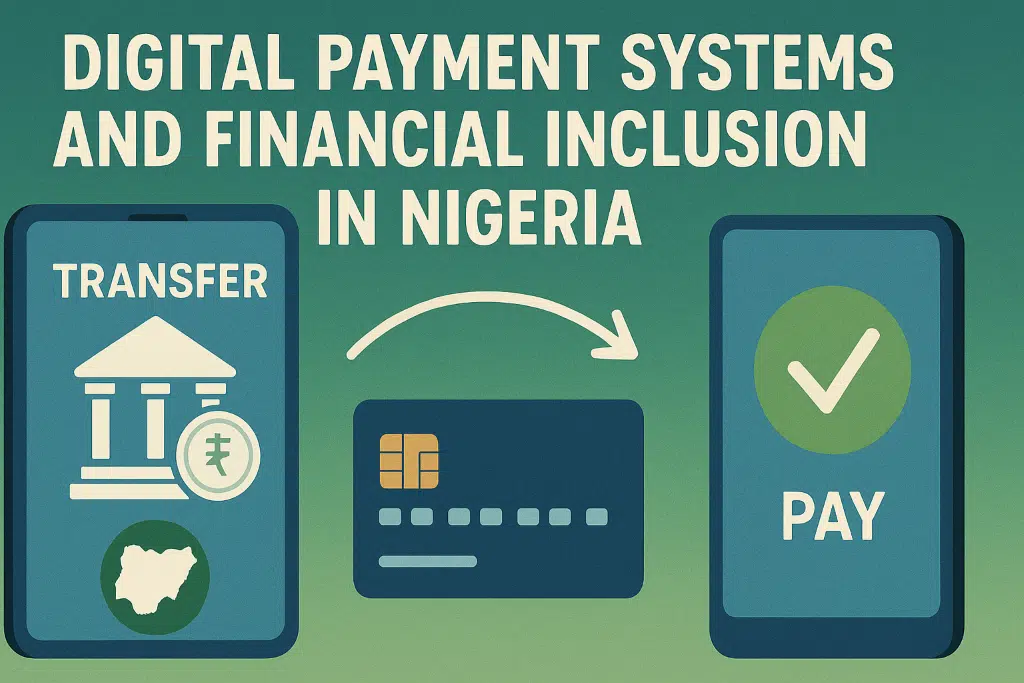Digital payment systems have revolutionised Nigeria’s financial sector over the last ten years by enhancing economic participation while promoting financial inclusion. Traditional cash-based transactions used to dominate the country until it began its transition to digital financial systems that enable millions of citizens to conduct money transactions through mobile devices. Financial service providers, together with technology platforms, have contributed to the growth of both convenience and access during this transition. The trusted global forex broker HFM has established itself as a leading brand which empowers Nigerian traders by providing reliable tools and secure platforms, and financial education to boost their market participation.
Digital payment system growth in Nigeria results from three key elements that combine mobile phone penetration with government support for fintech innovation and a tech-oriented youthful population. People now conduct financial transactions through mobile money platforms combined with digital wallets and USSD banking and application-based financial services. These systems extend financial services to people who were historically outside of the traditional banking system because of their geographical location or missing documentation, or poor financial understanding.
Traditional banks face substantial obstacles in their efforts to reach the unbanked and underbanked population because more than 200 million people live in rural areas. Digital payment systems function as a solution to connect those who lack access to traditional banking systems. Through their flexible, decentralised networks, mobile money agents, together with fintech startups, enable users to perform financial operations without requiring bank visits. The established infrastructure now delivers basic financial services to everyday Nigerians with particular emphasis on women and small business owners located in remote communities.
Digital payment adoption receives support from governmental efforts that drive its growth. The Central Bank of Nigeria (CBN) established a cashless policy framework which works to boost electronic transactions and decrease cash dependence, and enhance financial transparency. The launch of regulatory sandboxes provides both oversight and testing opportunities for responsible fintech innovation.
Fintech companies have established themselves as leading entities through their development of integrated services in recent years. The platforms extend financial inclusion by providing specialised banking solutions to people who lack access to conventional banking products, which include budgeting tools alongside savings features and credit scoring and microloan opportunities. Users can manage their finances and build credit profiles, and initiate investments through their smartphones from any location where they live.
Small and medium-sized enterprises (SMEs), which drive Nigeria’s economic foundation, have obtained advantages from the expansion of digital payment systems. The business community can receive digital payments through QR codes as well as point-of-sale devices and social media platforms that link to mobile wallets. Digital payment adoption enables entrepreneurs to obtain formal credit through their established digital transaction records. The combination of payment and financing tools serves as a fundamental element for business growth, which leads to job creation throughout the nation.
The advancement of financial inclusion heavily depends on the level of digital literacy among users. Although smartphone and mobile network access improve steadily, there is a pressing need to teach people how to safely use digital financial services effectively. Through public-private partnerships, the issue is being addressed by delivering community outreach programs and training sessions, as well as creating local content in local languages. When citizens understand these financial tools, they will boost their adoption and usage, which will generate additional adoption.
Despite the progress, challenges still exist. Complete participation in financial services faces obstacles from unreliable networks and cybersecurity threats, and scepticism about digital systems. Some users maintain their reluctance because they worry about fraud occurrences, together with unclear fee structures. To create a resilient digital financial environment that includes all stakeholders, service providers, and regulators along with community leaders must work together to address these concerns.
The growth of digital currencies using blockchain technology creates both opportunities and difficulties. The Central Bank’s eNaira digital currency represents a major advancement in government-backed financial innovation for Nigeria. Widespread eNaira adoption would result in easier payments while decreasing costs and improving international money transfers. The initiative requires solid infrastructure development together with educational programs and trust-building efforts for success.
As Nigeria develops its digital economy, HFM stands out as a trusted financial service provider which plays an expanding role. HFM provides Nigerian clients access to global financial markets through secure platforms with local support, along with advanced trading tools that build their market confidence. Financial inclusion goals to empower users through transparency, along with regulation and financial education, align with HFM’s dedication to these principles.
The development of complete financial inclusion continues through digital payment systems that serve as essential drivers of progress. Nigeria demonstrates strong potential to establish a financial system that provides equal access to efficient services through sustained innovation combined with policy backing and community participation. The digital revolution’s growing acceptance by people and businesses will maintain Nigeria’s ability to discover new economic and social empowerment pathways.





